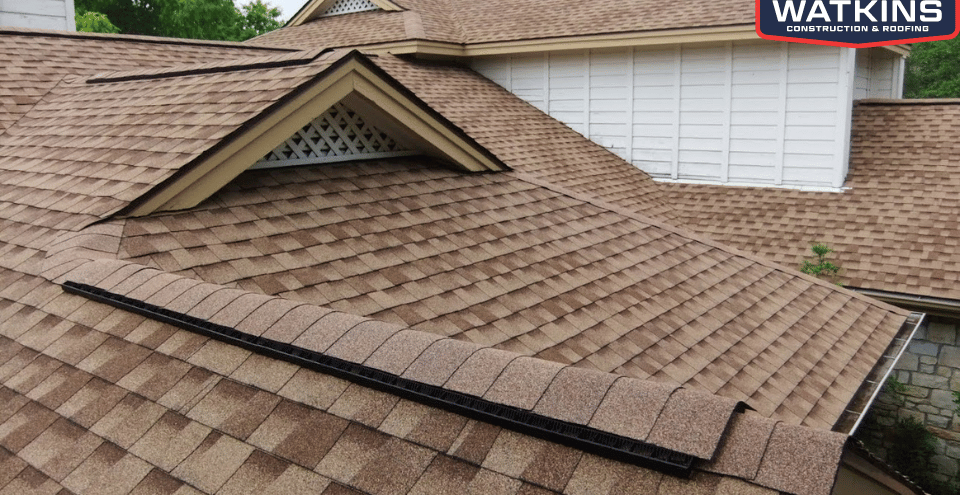Tips and Tricks to Budgeting for a Roofing Project with Watkins Construction & Roofing. A well-maintained roof is crucial for protecting your home and ensuring its longevity. When it’s time for a roofing project, whether it’s repairs, replacements, or upgrades, budgeting plays a significant role in the process. Proper budgeting not only helps you manage costs but also ensures that your roofing project is completed successfully. In this comprehensive guide, we’ll provide you with valuable tips and tricks for budgeting for a roofing project, allowing you to make informed financial decisions and achieve the desired results for your home.

Assess the Scope of the Project
The first step in budgeting for a roofing project is to determine the scope of the work required. Consider the following factors:
Roof Type: Different roofing materials and styles have varying costs. Determine whether you need a basic asphalt shingle roof, a more durable metal roof, or another type of roofing material.
Repairs vs. Replacement: Assess whether your project involves minor repairs or a full roof replacement. Replacement is generally more expensive than repairs but may be necessary for an aging or severely damaged roof.
Additional Work: Consider any additional work that may be needed, such as replacing flashing, upgrading insulation, or addressing ventilation issues.
Contractor Costs: Factor in labor costs, including the hiring of a professional roofing contractor, if necessary.
Set a Realistic Budget
Once you’ve assessed the project’s scope, set a realistic budget based on your financial situation and priorities. Consider the following tips:
Research Costs: Gather quotes from roofing contractors, suppliers, and manufacturers to get a sense of the project’s potential cost.
Add a Contingency Fund: Include a contingency fund in your budget to account for unexpected expenses or changes in the project scope.
Prioritize Needs: Determine what aspects of the project are essential and prioritize them in your budget. You may need to make trade-offs between different features or materials.
Consider Financing Options: Explore financing options such as home improvement loans, HELOCs (Home Equity Lines of Credit), or credit cards with favorable terms to help cover the costs if needed.
Choose Quality Materials
Investing in quality roofing materials can help you save money in the long run by reducing maintenance and replacement costs. While high-quality materials may have a higher upfront cost, they often offer better durability and longevity. Consider the following material-related budgeting tips:
Longevity: Research roofing materials with longer lifespans, as they may require fewer replacements over the years.
Energy Efficiency: Energy-efficient roofing materials can lower your energy bills, providing long-term cost savings.
Warranty Coverage: Check the warranties offered by roofing manufacturers, as longer warranties can provide added protection and reduce future repair costs.
Obtain Multiple Quotes
When seeking roofing services, obtain multiple quotes from reputable roofing contractors. Comparing quotes can help you find the best value for your budget. Here’s how to do it:
Research Contractors: Research and vet roofing contractors to ensure they have a good reputation and proper licensing and insurance.
Request Detailed Quotes: Ask contractors for detailed quotes that outline the scope of work, materials, labor costs, and any additional charges.
Compare Quotes: Compare quotes not only based on the total cost but also on the quality of materials and the warranties offered.
Consider Energy Efficiency
An energy-efficient roof can provide long-term savings on your utility bills and contribute to a more sustainable home. When budgeting for a roofing project, consider the following energy-efficient options:
Cool Roofing: Cool roofing materials reflect more sunlight and absorb less heat, reducing your home’s cooling costs.
Improved Insulation: Adequate insulation can enhance energy efficiency by reducing heat transfer and maintaining a comfortable indoor temperature.
Roof Maintenance Plan
After completing your roofing project, it’s essential to implement a maintenance plan to extend the roof’s lifespan and prevent costly issues. Budget for regular roof inspections and maintenance, which may include:
Cleaning gutters and downspouts to ensure proper water drainage.
Periodic roof inspections to identify and address potential issues.
Repairing small problems promptly to prevent them from escalating into more extensive and costly repairs.
Scheduling professional roof cleaning to remove debris, moss, and algae.
DIY vs. Professional Labor
Decide whether you will tackle any part of the roofing project as a do-it-yourself (DIY) task or hire professionals for the entire project. Here are some considerations:
DIY Savings: Performing certain tasks, such as cleaning gutters or minor repairs, yourself can save money on labor costs.
Professional Quality: Complex projects, such as roof replacements, flashing installation, or structural repairs, are best handled by professionals to ensure quality workmanship and safety.
Evaluate Your Skills: Be honest about your roofing skills and experience. Attempting complex tasks without the necessary expertise can lead to costly mistakes.
Explore Financing Options
If your roofing project exceeds your immediate budget, consider financing options to make the project more manageable. Some financing options to explore include:
Home Improvement Loans: Banks and credit unions offer home improvement loans with competitive interest rates for financing roofing projects.
HELOCs (Home Equity Lines of Credit): If you have sufficient home equity, a HELOC can provide a flexible source of funding for your project.
Credit Cards: Some credit cards offer special financing promotions, such as zero-interest introductory periods, that can be used for home improvement projects.
Plan for Future Roof Replacement
When budgeting for a roofing project, think about the long-term and plan for future roof replacements. Consider setting aside funds each year in a dedicated savings account or budget category to prepare for eventual roof replacement costs.
Tax Credits and Rebates
Research whether there are any available tax credits, rebates, or incentives for energy-efficient roofing materials or solar installations in your area. These can help offset some of the project costs and improve your return on investment.
Conclusion
Budgeting for a roofing project is a crucial step in maintaining the integrity of your home while managing costs effectively. By assessing the project’s scope, setting a realistic budget, choosing quality materials, obtaining multiple quotes, considering energy efficiency, and exploring financing options, you can ensure that your roofing project is completed successfully within your financial means. Additionally, planning for regular roof maintenance and potential future replacements will help you protect your investment and enjoy a durable and long-lasting roof over your home.
For more information, you can reach Watkins Construction & Roofing at 601-488-3179. We service areas in Jackson, Flowood, Clinton, and Ridgeland, MS.
